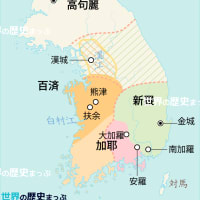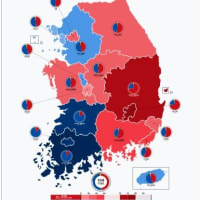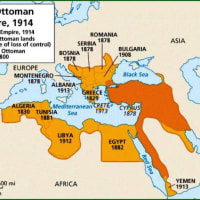●PART 2
China and India in World War III
By Chan Akya Jul 26, 2006
I wrote in Part 1 (World War III - what, me worry?, July 25) on the subject of how China and India would fail to react in the event that the West and Islam proceed toward a full conflagration, even if such a conflict would be a heaven-sent opportunity for both powers to fully realize their own strategic objectives. While current events dictate an eventual conflict, a number of factors will have to fall in place before World War III does break out. The roles for North Korea, Taiwan and Pakistan are falling into place in this conflict, and it is using these cards that the West and Islam can play the two ancient civilizations.
I predict that future generations of Indians and Chinese will literally worship George W Bush and Osama bin Laden for having pushed the West into a disastrous conflict with Islam. An escalation of terrorist attacks against Christian and Jewish powers has already caused the moral compass to tilt against Islam. It appears only a matter of time before either the United States or Israel uses weapons of mass destruction against an Islamic power, albeit for preemptive rather than offensive purposes.
That Iranian nuclear establishments will be bombed in the next few months is by now a foregone conclusion. If the US decides to use conventional but lethal force, rather than risk allowing Israeli bombing of Iranian facilities, the moral compass shifts back in favor of Islam.
President Bush has failed to finish the job with bin Laden, leaving the mess for someone else to handle - eerily echoing the same failure of his father to depose Saddam Hussein, which necessitated his current misadventure in Iraq.
Assuming that the US does attack Iranian facilities, how does the progress to an all-out war between Islam and the West take place?
We have to recognize that no established Islamic power has the ability to strike outside of its immediate border. The armed forces of Egypt, Saudi Arabia, Syria and Iran have no capacity to inflict meaningful harm on the West. The sole exception is Pakistan, which is why the global terrorist brotherhood will probably focus more of its attention on this country than any other in the next few months.
The key strategic aim here would be to secure a working nuclear weapon. Sensing an opportunity to unite against greater enemies, we have seen in July cooperation not only between Hamas and Hezbollah, but also potentially with bin Laden, if the recent train bomb attacks that killed almost 200 in India were orchestrated by al-Qaeda as is being claimed.
It appears more than a coincidence that both Israel and India were attacked at the same time - I expect that moves to drag Pakistan into outright war against the West are already under way.
Perverse logic
Pakistan is ruled by President General Pervez Musharraf, who is focused almost exclusively on his own survival. Casting his tent with the West after September 11, 2001, was a stroke of genius that immediately opened up Western coffers that had been unavailable since the country's nuclear tests in 1998.
Still, keeping local militants on his side has involved the obvious barter of border peace with India, in other words by leaving the Kashmir issue unresolved. This serves as a rallying call for the faithful, and to the extent that disaffected youth plan carnage in India rather than in Karachi, the general is left with breathing room. In return for letting them operate, it appears the terrorists promised to keep a relatively low profile until the end of this year - that is, after the US elections in November.
However, I believe that the plan has backfired. Just as Syria failed to show much control over Hezbollah, Pakistan has lost control of its militants, who now appear to work directly with al-Qaeda command structures. The turning point could well have been the Pakistani army attacks in the Pashtun areas that were undertaken to keep the US happy in its "war on terror".
Disenchanted that the Pakistani army could kill its own creations, Kashmiri militants appear to have bypassed the army, going straight to the Taliban and perhaps even to bin Laden. This explains the attacks on both Srinagar (grenade explosions that killed nine) and Mumbai on the same day, a move that seems to have caught even the Pakistani army by surprise, if its state of readiness in the days preceding the attacks is any indication.
A continuation of such attacks on Indian targets will embarrass the Pakistani army, while any ham-fisted attempts to collar the terrorists will likely backfire in a similar way the conflict in Waziristan did. (The conflict began in 2004 when the Pakistani army began its search for al-Qaeda in the mountainous Waziristan tribal areas.)
The Pakistani army will find soon that the costs of keeping Musharraf in power outweigh the benefits, particularly if no arms supplies materialize from the US. At that juncture, and disguised as a coup, there is every chance that a nuclear weapon will go missing. This weapon will be to World War III what Serbian nationalist Gavrilo Princip was to World War I.
China can't, India won't
Rather than India, I believe the West would turn to China if this eventuality were to arise. The chief reason, as I wrote before, is that India's 150 million Muslims in essence rule out any chance of direct Indian involvement in the battle.
China, on the other hand, has a big role to play, because of its influence on both Pakistan (which has weapons of mass destruction) and North Korea (which has the projectiles capable of delivering them). While many commentators have joked about the accuracy of North Korean missiles, claiming for example that the safest place in the world is the target, such humor falls flat if the projectile is armed with a nuclear weapon.
Many Pakistani generals study and train in China, and the country has provided key technologies. If China were to prove unwilling to cooperate, as it finds more in common with Islam than the West, then the US and Europe are likely to use the Taiwan card. No Chinese leader can survive Taiwanese independence; the event might well prove catastrophic for the Chinese Communist Party itself. Under the circumstances, its desire to prevent a split would push China to support the West, much as it might prefer to do the opposite.
What can China actually do, though, if nuclear weapons go missing in Pakistan? Beyond the initial stage of assessing responsibility, China can also pinpoint other locations for safeguarding - this is the reason that I do not expect the entire nuclear arsenal of Pakistan to fall into the hands of the Islamist powers.
Since the 1998 Pakistani nuclear tests in 1998 showed that the weapons had Chinese origins, Beijing has been constantly pressured to maintain a close watch on locations and access. Thus it becomes imperative for the West to use China as a preventive measure rather than a cure.
Enough pressure on China combined with obdurate Pakistani leadership may push Chinese confrontation against Pakistan, starting with an abrogation of the friendship treaty. That leaves China free to pretend that a conflict involving Pakistan does not necessarily extend to itself. The People's Liberation Army has sufficient strike power, but that's only so long as the enemy drives in through the Gobi Desert.
I repeat that despite all the historical reasons that India's right wing would extend, there is no chance of the country participating in a war between the West and Islam. Failing to find an ally that will directly occupy Pakistan and Iran, the West will be left with no alternative but to attempt this on its own, with the US, Russia and the United Kingdom providing a bulk of the manpower.
The outcome will be a sufficient weakening of both the West and Islamic power over the following 20 years.
http://www.atimes.com/atimes/Front_Page/HG26Aa01.html
●PART 1: World War III - what, me worry?
By Chan Akya Jul 25, 2006
http://www.atimes.com/atimes/Front_Page/HG25Aa02.html
China and India in World War III
By Chan Akya Jul 26, 2006
I wrote in Part 1 (World War III - what, me worry?, July 25) on the subject of how China and India would fail to react in the event that the West and Islam proceed toward a full conflagration, even if such a conflict would be a heaven-sent opportunity for both powers to fully realize their own strategic objectives. While current events dictate an eventual conflict, a number of factors will have to fall in place before World War III does break out. The roles for North Korea, Taiwan and Pakistan are falling into place in this conflict, and it is using these cards that the West and Islam can play the two ancient civilizations.
I predict that future generations of Indians and Chinese will literally worship George W Bush and Osama bin Laden for having pushed the West into a disastrous conflict with Islam. An escalation of terrorist attacks against Christian and Jewish powers has already caused the moral compass to tilt against Islam. It appears only a matter of time before either the United States or Israel uses weapons of mass destruction against an Islamic power, albeit for preemptive rather than offensive purposes.
That Iranian nuclear establishments will be bombed in the next few months is by now a foregone conclusion. If the US decides to use conventional but lethal force, rather than risk allowing Israeli bombing of Iranian facilities, the moral compass shifts back in favor of Islam.
President Bush has failed to finish the job with bin Laden, leaving the mess for someone else to handle - eerily echoing the same failure of his father to depose Saddam Hussein, which necessitated his current misadventure in Iraq.
Assuming that the US does attack Iranian facilities, how does the progress to an all-out war between Islam and the West take place?
We have to recognize that no established Islamic power has the ability to strike outside of its immediate border. The armed forces of Egypt, Saudi Arabia, Syria and Iran have no capacity to inflict meaningful harm on the West. The sole exception is Pakistan, which is why the global terrorist brotherhood will probably focus more of its attention on this country than any other in the next few months.
The key strategic aim here would be to secure a working nuclear weapon. Sensing an opportunity to unite against greater enemies, we have seen in July cooperation not only between Hamas and Hezbollah, but also potentially with bin Laden, if the recent train bomb attacks that killed almost 200 in India were orchestrated by al-Qaeda as is being claimed.
It appears more than a coincidence that both Israel and India were attacked at the same time - I expect that moves to drag Pakistan into outright war against the West are already under way.
Perverse logic
Pakistan is ruled by President General Pervez Musharraf, who is focused almost exclusively on his own survival. Casting his tent with the West after September 11, 2001, was a stroke of genius that immediately opened up Western coffers that had been unavailable since the country's nuclear tests in 1998.
Still, keeping local militants on his side has involved the obvious barter of border peace with India, in other words by leaving the Kashmir issue unresolved. This serves as a rallying call for the faithful, and to the extent that disaffected youth plan carnage in India rather than in Karachi, the general is left with breathing room. In return for letting them operate, it appears the terrorists promised to keep a relatively low profile until the end of this year - that is, after the US elections in November.
However, I believe that the plan has backfired. Just as Syria failed to show much control over Hezbollah, Pakistan has lost control of its militants, who now appear to work directly with al-Qaeda command structures. The turning point could well have been the Pakistani army attacks in the Pashtun areas that were undertaken to keep the US happy in its "war on terror".
Disenchanted that the Pakistani army could kill its own creations, Kashmiri militants appear to have bypassed the army, going straight to the Taliban and perhaps even to bin Laden. This explains the attacks on both Srinagar (grenade explosions that killed nine) and Mumbai on the same day, a move that seems to have caught even the Pakistani army by surprise, if its state of readiness in the days preceding the attacks is any indication.
A continuation of such attacks on Indian targets will embarrass the Pakistani army, while any ham-fisted attempts to collar the terrorists will likely backfire in a similar way the conflict in Waziristan did. (The conflict began in 2004 when the Pakistani army began its search for al-Qaeda in the mountainous Waziristan tribal areas.)
The Pakistani army will find soon that the costs of keeping Musharraf in power outweigh the benefits, particularly if no arms supplies materialize from the US. At that juncture, and disguised as a coup, there is every chance that a nuclear weapon will go missing. This weapon will be to World War III what Serbian nationalist Gavrilo Princip was to World War I.
China can't, India won't
Rather than India, I believe the West would turn to China if this eventuality were to arise. The chief reason, as I wrote before, is that India's 150 million Muslims in essence rule out any chance of direct Indian involvement in the battle.
China, on the other hand, has a big role to play, because of its influence on both Pakistan (which has weapons of mass destruction) and North Korea (which has the projectiles capable of delivering them). While many commentators have joked about the accuracy of North Korean missiles, claiming for example that the safest place in the world is the target, such humor falls flat if the projectile is armed with a nuclear weapon.
Many Pakistani generals study and train in China, and the country has provided key technologies. If China were to prove unwilling to cooperate, as it finds more in common with Islam than the West, then the US and Europe are likely to use the Taiwan card. No Chinese leader can survive Taiwanese independence; the event might well prove catastrophic for the Chinese Communist Party itself. Under the circumstances, its desire to prevent a split would push China to support the West, much as it might prefer to do the opposite.
What can China actually do, though, if nuclear weapons go missing in Pakistan? Beyond the initial stage of assessing responsibility, China can also pinpoint other locations for safeguarding - this is the reason that I do not expect the entire nuclear arsenal of Pakistan to fall into the hands of the Islamist powers.
Since the 1998 Pakistani nuclear tests in 1998 showed that the weapons had Chinese origins, Beijing has been constantly pressured to maintain a close watch on locations and access. Thus it becomes imperative for the West to use China as a preventive measure rather than a cure.
Enough pressure on China combined with obdurate Pakistani leadership may push Chinese confrontation against Pakistan, starting with an abrogation of the friendship treaty. That leaves China free to pretend that a conflict involving Pakistan does not necessarily extend to itself. The People's Liberation Army has sufficient strike power, but that's only so long as the enemy drives in through the Gobi Desert.
I repeat that despite all the historical reasons that India's right wing would extend, there is no chance of the country participating in a war between the West and Islam. Failing to find an ally that will directly occupy Pakistan and Iran, the West will be left with no alternative but to attempt this on its own, with the US, Russia and the United Kingdom providing a bulk of the manpower.
The outcome will be a sufficient weakening of both the West and Islamic power over the following 20 years.
http://www.atimes.com/atimes/Front_Page/HG26Aa01.html
●PART 1: World War III - what, me worry?
By Chan Akya Jul 25, 2006
http://www.atimes.com/atimes/Front_Page/HG25Aa02.html




























※コメント投稿者のブログIDはブログ作成者のみに通知されます